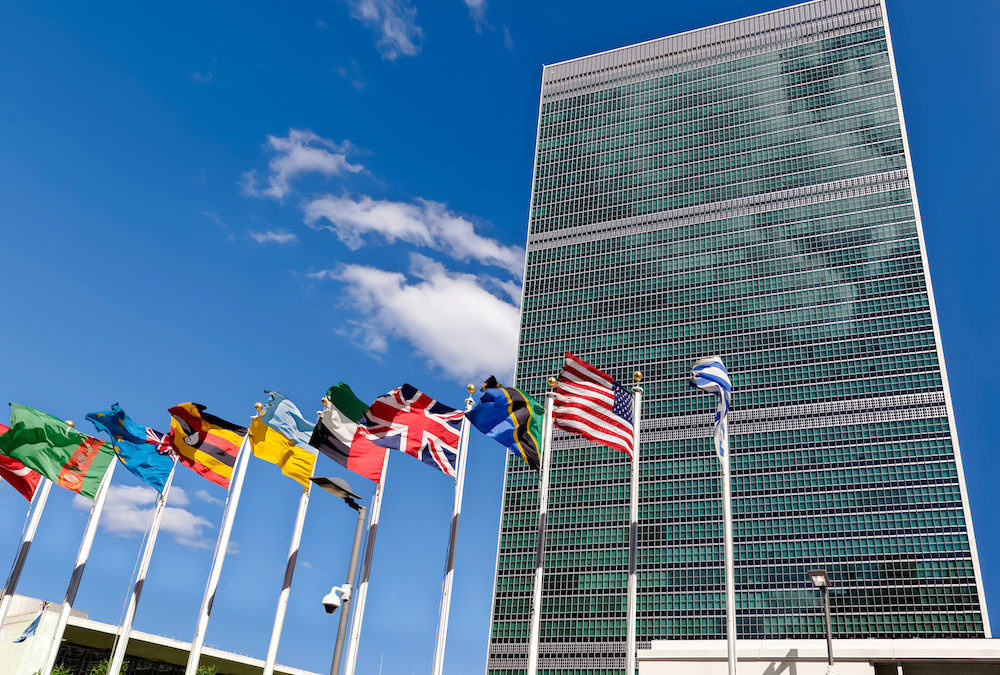Where are we with SDG 4?
Recently, world leaders gathered at the United Nations High-Level Political Forum (HLPF) to assess progress toward Sustainable Development Goal 4 (SDG 4). According to UNESCO’s latest projections – which align with the Commission’s analysis – the world is off-track to achieve universal access to quality education and learning by 2030. The UN agency estimates that more than 220 million young people will still be out of school in 2030, and only six in ten young people will complete secondary education.
These dramatic statistics add to a now growing body of major reports highlighting the global learning crisis like the World Bank’s World Development Report and the Commission’s Learning Generation report.
It does not have to be this way.
The Learning Generation report provided an agenda for action and called on the global community to transform education by:
- Strengthening the performance of systems by putting results (and their measurement!) first;
- Developing new and creative approaches to achieving results by harnessing innovation;
- Taking additional measures to support those at the greatest risk of not learning; and
- Investing more in what works.
This agenda continues to drive the work of the Commission and its partners.

 Data Revolution
Data Revolution
Putting results first by measuring them
In the lead up to the HLPF, the Education Commission joined UNESCO and 37 other organizations in issuing a collective call to fund education data. Without access to more and better quality data for SDG 4, decision-makers and practitioners cannot accurately monitor progress and adjust their actions. More and better data will directly impact the capacity of policymakers to make the right decisions
During the HLPF, several new reports were released that shed new light on the current state of education and contribute to the growing body of evidence.
- UNESCO’s “Meeting Commitments” report examines each SDG 4 indicator, overviewing progress and gaps for each.
- The Education 2030 Steering Committee’s “Beyond Commitments” companion publication offers a framework for how countries can best implement reforms to reach SDG 4 with specific country examples.
- Education International’s new report synthesizes the perspective of teachers and support personnel, finding that they too feel the world if “off track” to reach SDG 4.
Workforce revolution
Reimagining how we achieve learning
Teachers – and the many other professionals impacting students – were a central part of conversations at the HLPF. Many governments officials and partners stressed the need to invest in teachers and their training. For the past year, thanks to support from the United Kingdom’s Department for International Development (DFID), the Education Workforce Initiative has worked to rethink how teachers, support staff, district leaders, and other professionals can all play a role in equipping students with adaptable skills for the 21st century. During the week of September 23, alongside the UNGA, we will release our findings in the new, in-depth Education Workforce Report.
Financing revolution
Investing more and differently
Earlier this month, former Administrator of the United Nations Development Programme Helen Clark said, “money is not everything but it counts.” Financing for education was a key theme at this year’s HLPF. During the first half of 2019, the Commission and its partners have made major progress in the development of the International Finance Facility for Education (IFFEd). The team has collaborated with representatives of dozens of donor and recipient countries to finalize the Facility’s governance, and our proposal has been officially submitted to the credit rating agencies for review. During the HLPF we also continued to seek input and feedback from civil society, with Theirworld hosting a briefing for the CSO community.
Going further together
Under the banner of “Jointly Accelerating Progress for SDG 4,” UNESCO recently convened leaders of the Global Multilateral Education Partners in Paris. During this gathering, the group committed to maintain strategic dialogue among the principals of multilateral partners through a joint action platform and to support a proposal by the UN Special Envoy for Global Education Gordon Brown to establish a global Education Forum. The Forum will convene international education institutions along with development ministries and agencies providing aid to education. With only a few years left to achieve SDG 4, the group aims to accelerate education progress by assessing key bottlenecks, delivering support for reform, and improving finance for education systems – paying close attention to access, quality, and inclusion. The first meeting of the new Education Forum will be held during the United Nations General Assembly in September.
 Rethinking education investment
Rethinking education investment
Earlier this year, during the World Bank – IMF Spring Meetings in April, the Commission also released a memo on Education Bonds with our partners at the Global Business Coalition for Education (GBC-Ed) to engage the business community in supporting long term funding for education. Once operational next year, IFFEd will increase the capacity of the multilateral development banks to invest in education. This additional investment could be generated through issuing Education Bonds supporting the overall momentum of investment in education.

